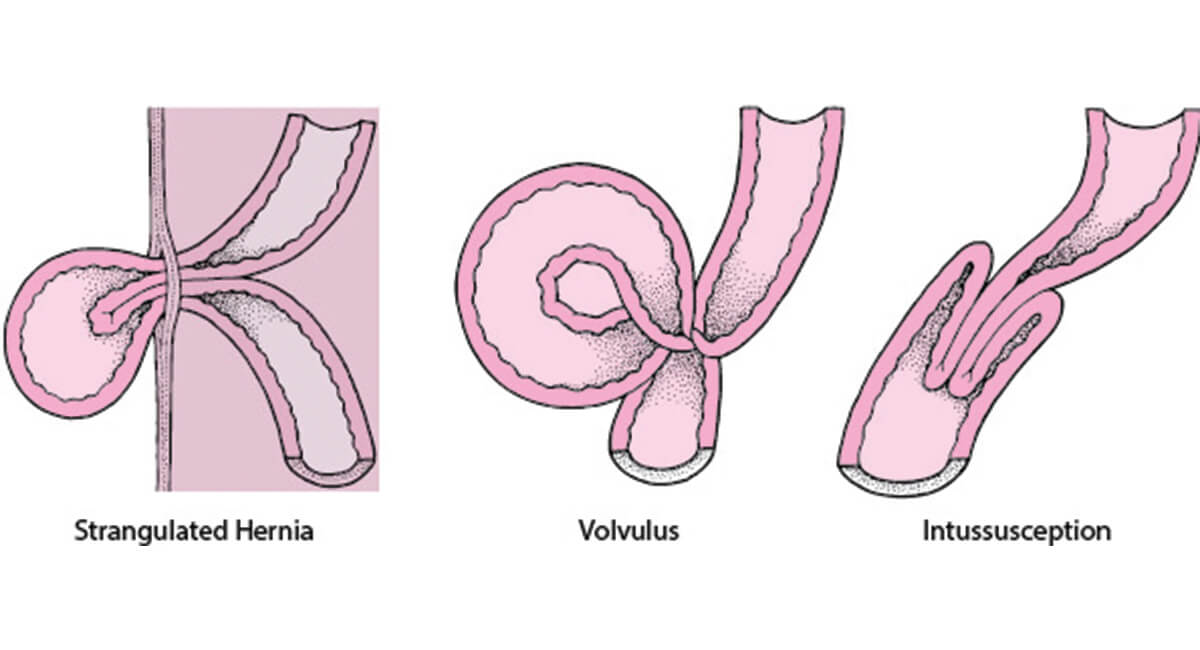
Introduction
Intestinal Obstruction is a life-threatening medical condition. If left untreated, the blocked parts of the intestine can get severely damaged, leading to multiple health complications. However, with a timely diagnosis and treatment, Intestinal Obstruction can be successfully treated.
As a part of the normal digestive process, the digested food particles travel through the 25 feet of intestines. The digested waste is constantly in motion. When you develop an Intestinal Obstruction, a small part of either your small intestine or large intestine gets blocked. The blockage obstructs the normal digestive process.
As the intestinal area gets blocked, the food, fluids, gas, and gastric acids get accumulated behind the obstruction. If excessive pressure builds up in the intestinal area over a prolonged time, your intestine can rupture. It can leak harmful intestinal content into your abdominal cavity, causing severe health-related complications.
One of the common types of Intestinal Obstruction is fecal impaction. Here, a hard, large mass of stool gets stuck in your large intestine, which cannot get pushed away.
Request an Appointment at Smiles
What are the Causes of Intestinal Obstruction?
Intestinal Obstruction can either be caused by a mechanical obstruction or non-mechanical obstruction.
Mechanical Obstruction
These obstructions occur when something physically blocks your intestine, such as:
- ● Adhesions: Consists of fibrous tissues that usually develop after severe inflammation or pelvic or abdominal surgery
- ● Tumors
- ● Impacted stool
- ● Gallstones
- ● Ovarian cancer
- ● Colon cancer
- ● Twisting of the intestines
- ● Hernias
- ● Inflammatory bowel diseases such as Crohn’s disease
- ● Diverticulitis
Non-Mechanical Obstruction
Normally, the small and large intestine work in coordination as a part of the digestive system. If something interrupts this coordination, it can cause a non-mechanical Intestinal Obstruction. In cases of temporary obstruction, it is called an ileus. A long-term or chronic obstruction is called a pseudo-obstruction.
Ileus can be caused by:
- ● Infections such as appendicitis
- ● Pelvic or abdominal surgery
- ● Certain medications such as opioid pain medications
Pseudo-obstruction is caused by:
- ● Nerve and muscle disorders such as multiple sclerosis
- ● Disorders that may cause nerve injury such as diabetes mellitus
- ● Hypothyroidism
What are the Symptoms of Intestinal Obstruction?
- ● Loss of appetite
- ● Constipation
- ● Vomiting
- ● Nausea
- ● Abdominal swelling
- ● Inability to pass stool or gas
- ● Abdominal pain
- ● Severe abdominal bloating
Some symptoms may depend on the severity and location of Intestinal Obstruction. For instance, vomiting may indicate the early stages of small Intestinal Obstruction. It can also indicate an ongoing obstruction of the large intestine.
Partial Intestinal Obstruction may be caused due to diarrhea. A complete obstruction is caused due to the inability to pass gas or stool.
How is Intestinal Obstruction Diagnosed?
- ● X-ray: An abdominal X-ray will create images of the small and large intestines. It will help the doctor confirm the diagnosis of Intestinal Obstruction. However, a standard X-ray may not be able to diagnose some types of Intestinal Obstruction.
- ● CT: A computerized tomography (CT) is a series of X-rays that create detailed images of the abdomen from different angles. These images are more helpful in diagnosing Intestinal Obstruction as compared to a standard X-ray.
- ● Colonoscopy: For this procedure, the doctor will insert a flexible tube-like device equipped with a light inside your large intestine. It will help the doctor look for the location of the Intestinal Obstruction.
- ● Enema: To get enhanced imaging of the colon, an air or barium enema may be used. For this procedure, the doctor will insert air or liquid barium through your rectum and into the colon. The barium will coat the lining of the intestine and provide better results on an X-ray.
How is Intestinal Obstruction Treated?
- ● Treatment for partial obstruction: If you develop a partial obstruction (one where food and liquids can still get through the obstruction), the doctor may recommend a low-fiber diet to help relieve it. If the obstruction does not resolve on its own, intestinal surgery may be recommended.
- ● Treatment for pseudo-obstruction: If your symptoms are caused by pseudo-obstruction, also known as paralytic ileus, the doctor may monitor your condition for a few days. In most cases, the paralytic ileus resolves on its own. To prevent malnutrition, the doctor may recommend a nasogastric tube or an IV for feeding purposes.
If the paralytic ileus does not resolve on its own, the doctor may prescribe medications that cause muscle contractions making the food and liquid move through the intestine.
- ● Treatment for complete obstruction: If you have a complete obstruction, intestinal surgery may be performed. The surgical procedure will depend on the causes and which part of the intestine is blocked. During the surgery, if the surgeon finds any part of the intestine that has been damaged or dead, it may be removed as well.
What is the Results of Intestinal Obstruction Treatment?
What are the Risk Associated with Intestinal Obstruction Treatments?
- ● Damage to other abdominal organs
- ● Development of scar tissue on the intestinal lining
- ● Intestinal leakage through the sewn
- ● Opening of the surgical incision
Request an Appointment at Smiles
FAQ's
How Long does an Intestinal Obstruction Surgery take?
How can you Live with an Intestinal Obstruction?
What Food Times should you Avoid with an Intestinal Obstruction?
Is an Intestinal Obstruction Painful?
Do Laxatives Work for Intestinal Blockages?
Need Help?
For any Information about our Locations, Doctors or Treatments.
